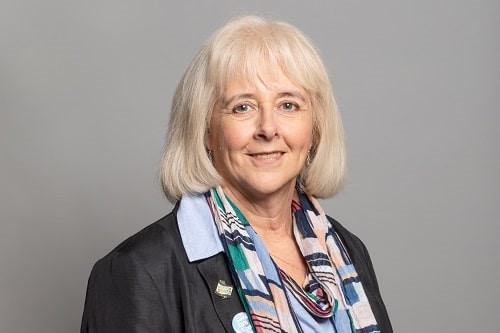Opinion
Preventing chemical pollution: how the UK is falling behind Europe
Anyone who works in the manufacture, handling or distribution of chemicals knows the importance of good safety protocols. When things go wrong, the consequences for workers’ health, for communities and for the natural world can be severe. Think of recent incidents – road or company closures, spills on the shoreline – and they conjure images of birds with chemical-coated plumage, local people huddling, worried about the impact on where they live and hazmat suits for clean-up operations.
These images can be shocking, but they do reflect an emergency response at work and safety protocols to deal with the situation. But what happens when toxic chemicals are not covered by sound protections?
I want to highlight two areas where the risks of chemical pollution are mounting, but the UK government’s regulatory response is falling behind. That can leave workers, neighbourhoods and our environment exposed to unseen risks of chemical pollution – an unsustainable future for us all.

Ruth Jones, Welsh Labour Member of Parliament for Newport West and Shadow Minister for Agri-Innovation and Climate Adaptation.
UK REACH
The REACH (Registration, Evaluation, Authorisation and restriction of Chemicals) Regulations have long been the foundation of good chemicals management in the UK. While the UK was a European Union (EU) Member State, we participated in a shared system. Since 2021, however, government agencies have been working alone under UK REACH. We have lost access to the world’s richest repository of information on hazardous chemicals and the protections from harm that information gives us.
The National Audit Office and the Public Accounts Committee have both concluded that the UK Health and Safety Executive (HSE) is struggling to fulfil its new responsibilities, especially in the face of cuts. Simply drawing together the data needed to identify, assess and control harmful chemicals is a massive undertaking.
Supplying registration data could cost industry
£2 billion and the government is already falling behind on its timetable for gathering this essential data.
A regulatory gap is opening between the UK and the EU. The EU has a powerful restrictions roadmap for regulating hazardous substances. By contrast, the UK chemicals strategy is nowhere in sight and recent PFAS (poly- and perfluoroalkyl substances) ‘forever chemical’ regulation proposals disappointed. At the same time, our government has also excluded workers’ representatives from being involved in decision-making.
Altogether, there is a serious risk that the UK falls behind in managing the harm of hazardous chemicals. More substances that can harm people and nature could fall through the cracks. There is surely a strong case to consider a system like Switzerland’s. The Swiss model benefits from a streamlined registration process for chemicals registered in EU REACH, but also follows EU controls on harmful chemicals as a default. Where there is clear evidence, a different approach to individual substances can be taken.
Chemical cocktails
Other countries are also getting ahead of the game in understanding the effects of chemicals in combination.
At the moment, we tend to rely on evidence relating to the risks of substances in isolation, but there is mounting science to show that chemicals can become more harmful to people and nature when they mix up in our environment.
We already know that none – zero per cent – of our rivers meet safety standards for good chemical health – yes, not a single stream. But that is likely to be just the tip of the iceberg in the chemical contamination of our environment. Many of the toxic substances that flow into our rivers – drugs, pesticides, forever chemicals and more – are unmonitored individually, let alone in combination.
A better future
Of course, chemicals play an important part in our economy and in our everyday lives, but the impacts of the industry should not be underestimated. The chemicals industry has the third largest carbon footprint of any industry in the UK, and after 13 years of Conservative government, not a single river in England meets chemical safety standards.
In May 2023, nature organisations published new research showing that there are toxic chemical cocktails, scientifically proven to harm wildlife, present in 1,600 river, lake and groundwater sites across England. That is more than three quarters of the sites the Environment Agency tests for chemical pollution. The shocking extent of the chemical cocktail our wildlife is swimming in, communities are surrounded by, and our workers have to deal with must be tackled head-on. It is time for a new approach – a sustainable future that benefits all and is the foundation for better business that is more profitable in the long term.
The core of change must be stricter standards. We need stricter tests before we allow chemicals onto the market, to reduce the chemical cocktail polluting our surroundings. We need tougher controls when things go wrong, with a one-out, all-out approach for similar chemicals if one is proven dangerous, so that one hazardous chemical can’t easily replace another. And we need comprehensive monitoring and research, so we know what’s in our rivers and air and how it is affecting us, our environment and our natural world.
Simply put, if we were the risk assessors on chemical pollution, we would be going back to the drawing board on our chemical safety protocol.
Ruth Jones is the Welsh Labour Member of Parliament for Newport West and Shadow Minister for Agri-Innovation and Climate Adaptation.
Follow Ruth Jones MP at:
ruthjones.wales
@RuthNewportWest
members.parliament.uk/member/4716/contact
HSE’s April 2023 report on regulatory management options for PFAS:
hse.gov.uk/reach/rmoa.htm
HSE’s UK REACH information:
hse.gov.uk/reach/
OPINION

The air we breathe is all our business
By Nicky O’Malley, director of corporate partnerships, Global Action Plan on 01 June 2023
Businesses have a vital role to play in improving air quality – and the UK’s Clean Air Day on 15 June is a great opportunity for companies to begin or renew their efforts in this area.

All jobs greener: why we need workforce transformation for a sustainable future
By Martin Baxter, deputy CEO, IEMA (Institute of Environmental Management & Assessment) on 01 June 2022
The shift to a green economy will create green jobs within new and emerging sectors, while those working in existing sectors will have to gain the requisite green skills to take advantage of the business value-creation opportunities that come from embedding sustainability across the whole organisation.

Preventing chemical pollution: how the UK is falling behind Europe
By Ruth Jones MP for Newport West & Shadow Minister for Agri-Innovation and Climate Adaptation on 01 June 2023


